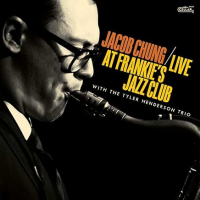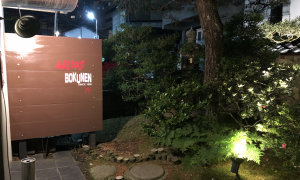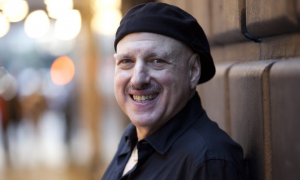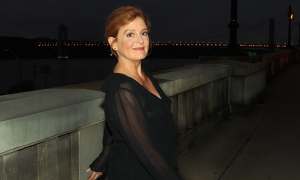Home » Jazz Articles » The Jazz Life » A Farewell to Madrid's Café Central
A Farewell to Madrid's Café Central
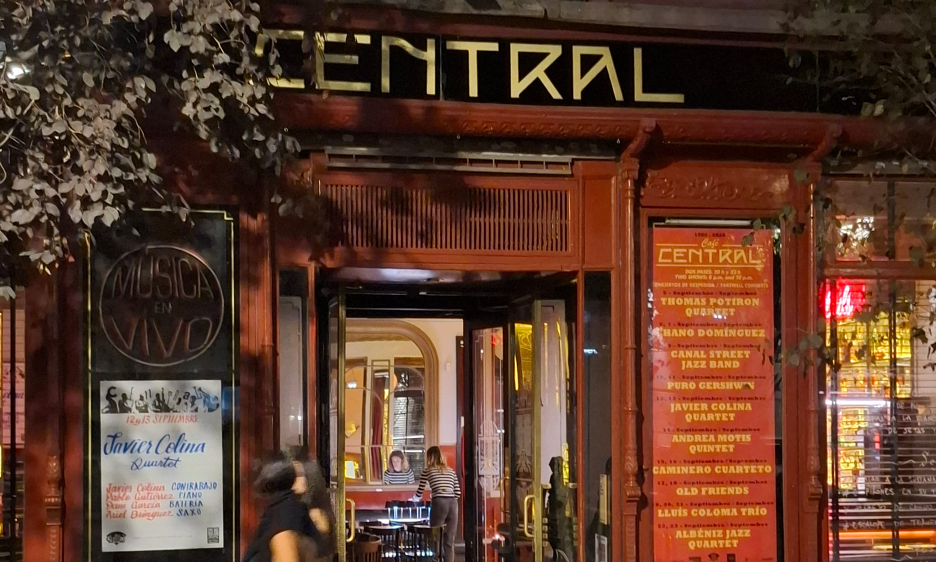
Courtesy Juantxu Bohigues
Anyone who has visited the Central, even just once, notices its irresistible charm, beyond the current trendy fake vintage recreation. The Madrid club oozes charisma and authenticity through all its well-worn pores: its amplifying mirrors, seductive bar, black upholstered sofas, peculiar spatial layout, and those transcendental glass panels—what else, in a former glassworks—facing Plaza del Ángel, in Madrid's culturally vibrant Barrio de las Letras. These windows allow the casual passerby to stop, observe, and, to some extent, hear what is happening inside—or better yet, what is about to happen. This element, undoubtedly fundamental to its success, is quite unusual nowadays: "it seems that jazz is destined for spaces without natural light, basements or underground locations, as if it were something illegal," notes Juantxu Bohigues, its house manager. In this sense, comparisons with the legendary New York Metropole are inevitable. That now-vanished venue, inextricably linked to Henry "Red" Allen, was known for its noisy interior atmosphere, its constant crowd of onlookers outside (taking advantage of the large windows and the powerful volume of the performances) and its distinctive interior design—qualities, almost all of them, that it shares with the Central. Unfortunately, it is now in the crosshairs of relentless, insatiable speculation. As David García, a successful Madrid architect, explains: "It's a prime location, with permits for musical performances, serving drinks and food, with a magnificent terrace, and located in a neighborhood where no additional licenses are granted for this kind of business. That has led to a brutal revaluation, which is very appetizing to the owners." A detailed look at one of the main reasons behind gentrification affecting jazz venues.
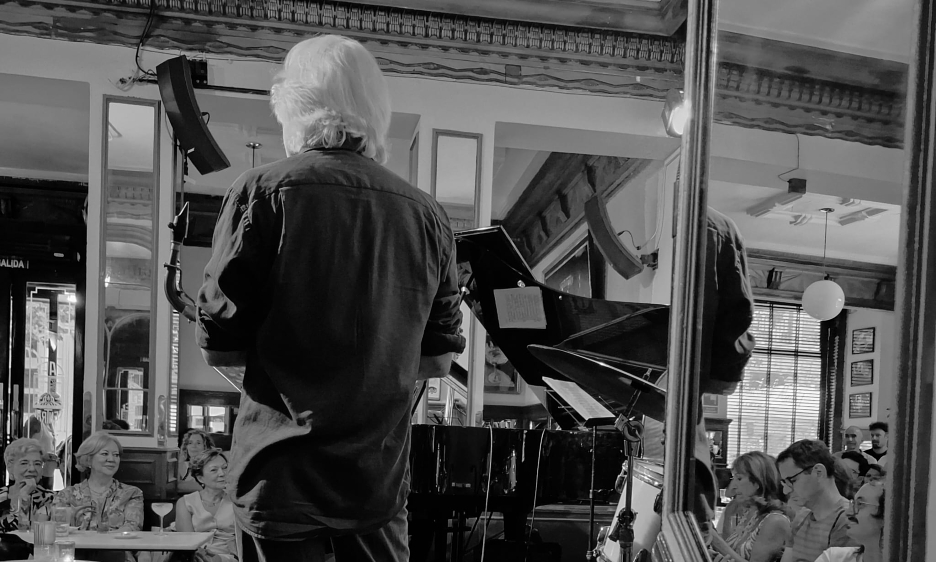
Since its opening in the summer of 1982, thousands of musicians have passed through the tiny, cornered stage of Café Central. Of course, all the principal stars of the Iberian scene, from historical figures like Pedro Iturralde and Tete Montoliu (who saved the establishment during a serious previous crisis, in 1994, by performing five consecutive weeks solo night after night... can anyone imagine that now?), to modern masters like Chano Dominguez, Jorge Pardo, Javier Colina or Ignasi Terraza. This extensive list is further complemented globally by a remarkable roster that includes, among many others, Sheila Jordan, Mal Waldron, Randy Weston, Barry Harris, Benny Golson, Art Farmer, Ron Carter, Al Foster, Bobby Watson, Sam Rivers, Kenny Barron, George Cables, Kirk Lightsey, Joe Farnsworth, Jerry Gonzalez, Paquito D'Rivera, Brad Mehldau, Jeremy Pelt and Mark Turner.
Several of these artists have formed deep connections with the venue; one of the earliest and most notable is Don Pullen, who performed there repeatedly—either as part of the essential quartet derived from Charles Mingus' final lineup, featuring George Adams, Dannie Richmond and Cameron Brown, or later as a bandleader. The Virginia-born pianist dedicated a piece to the club, "At The Cafe Centrale" (with incorrect typography, true, but he can be forgiven), included on his excellent album New Beginnings (Blue Note, 1989), and later recorded it with David Murray, switching from piano to organ on that occasion. Another strong bond is with Ben Sidran and his son Leo Sidran, with whom performances have been held annually for over 25 years. Ben dedicated an entire album to the Central—Cien Noches (Nardis, 2008)—while Leo openly laments the loss of a second home in a city he considers his own—he is one of the musicians taking part in what are sadly called "Conciertos Finales" (Last Concerts), with which the location puts an unwanted golden finale to its spectacular trajectory. Another long-standing loyalist is Barcelona-born pianist Terraza, who recently shared that "the Central is a place where I have been performing regularly every year since 1991, and it's without a doubt the site where I have played the most nights—I estimate about 250 approximately— and to which multiple memories bind me." Even more extreme is the example of American pianist, composer and producer Joshua Edelman, deeply involved in Bilbao's jazz scene and a Central devotee: he has performed there an astounding 702 times, and along with Madrid's extraordinary harmonica player Antonio Serrano, has recorded with his trio an album bearing the club's name, En El Central (i-n-g-o Música, 1999).
Bohigues welcomes us with growing enthusiasm on a stunningly sunny September morning, shortly after we had each witnessed the emotional performance the night before by Andrea Motis' quintet (Terraza, Josep Traver, Toño Miguel and Esteve Pi ), as they projected their final notes in the space. The Valencian balances the daily whirlwind ("every day of the week, two sets, each one, as night falls, with its different light and audience") with writing, organizing literary awards and generally contributing to the cultural energy that we desperately need more of each day—not precisely the opposite, as some seem bent on doing. "The closure is confirmed for October 12. It's a tragedy: I've only been here eight years, but it feels like they're ripping out a lung, a part of my existence," Bohigues explains with restrained resignation. Obviously, that is not where it all ends, or at least that is what he and the rest of the management are trying by all means: "We have a commitment to Madrid and to music, and to the 35 people on staff, which we want to maintain. We're looking for a new location, but it's not easy at all," he adds.
And indeed, the Central's rootedness with the city and its people, whether residents or visitors, is undeniable: "There are people who come every week! They're buying all the books we're publishing related to the Central. But beyond that, one person asks us if the piano is for sale, another shows interest in certain paintings... many want to take a little piece of the Central home." This magnetism extends beyond Spanish borders; according to Bohigues, "our programmer, Javier González, receives 15 to 20 emails daily from people who want to perform here—emails that come from New York City, France, Germany..."
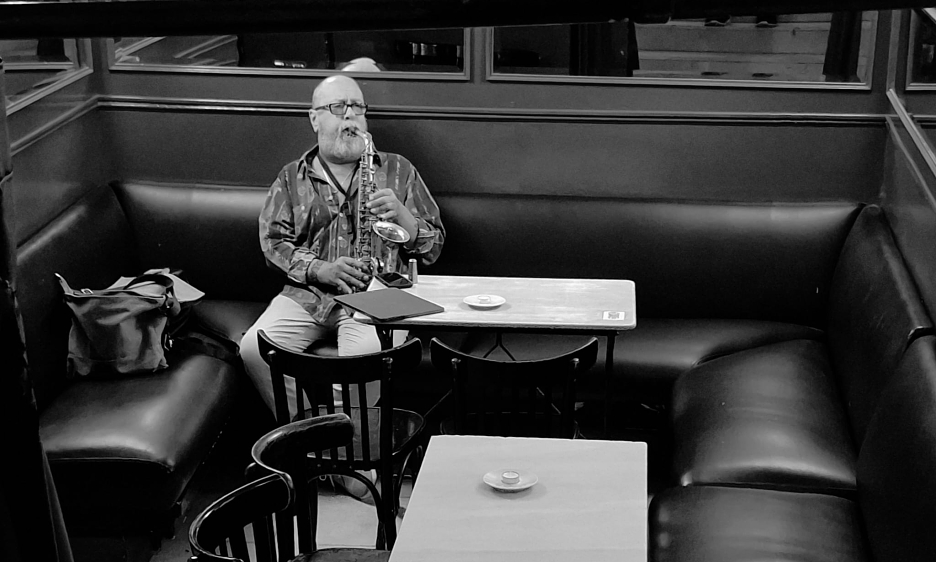
Adamant about not allowing the improvement in a few people's balance sheets to destroy the musical memory of a city, Bohigues has embarked on a new literary adventure: "The idea for the book 'Café Central: Una historia del Jazz' (Café Central: A Jazz History) arose after a Steve Nelson concert, and is inspired by a dialogue with Leo Sidran. And this 'thing' must not be lost. It's the struggle with time, against forgetting, it's working with memory... and it is, above all, a way of giving thanks for everything those musicians have given us. It's a ballad of the living and the dead... like a torch that, through music, they pass from one to another." It's evident that the conversation, warmed by a comforting coffee, becomes more lyrical and intimate as it progresses, prompting Bohigues to launch an appeal, no less desperate for being moderate: "Jazz is a way of facing life. And until October 11, I'm going to think there's a possibility. If the owner reads the newspaper, hears the radio, watches TV, or receives messages from any source, let him know that Madrid residents care deeply about the Central, that it's not a matter of closing one club and opening another: it's our history, and it's our memory, and that's not created overnight."
Eric Dolphy left it written on the back cover of his unforgettable Last Date (Jazz Up!, 1964): "When you hear music, after it's over, it's gone in the air. You can never capture it again." True, especially poetically, but quite a few of us try to fight against that, Bohigues among them. And indeed, we can all get sentimental and metaphorical, but our current reality is anything but that: art as a shield against pretentious stupidity and systematic barbarism works only to a point, enormously limited in its effects and meager in its time span. Still, one cannot help but admire that titanic David-versus-Goliath struggle, that persistent attempt to prevent the inevitable—or at least mitigate its devastating effects. Regardless of how it ends, thank you, Central, for all these years of courageous cultural resistance for a music that refuses to give up— despite being already a century old—its fight to emerge from near-clandestinity.
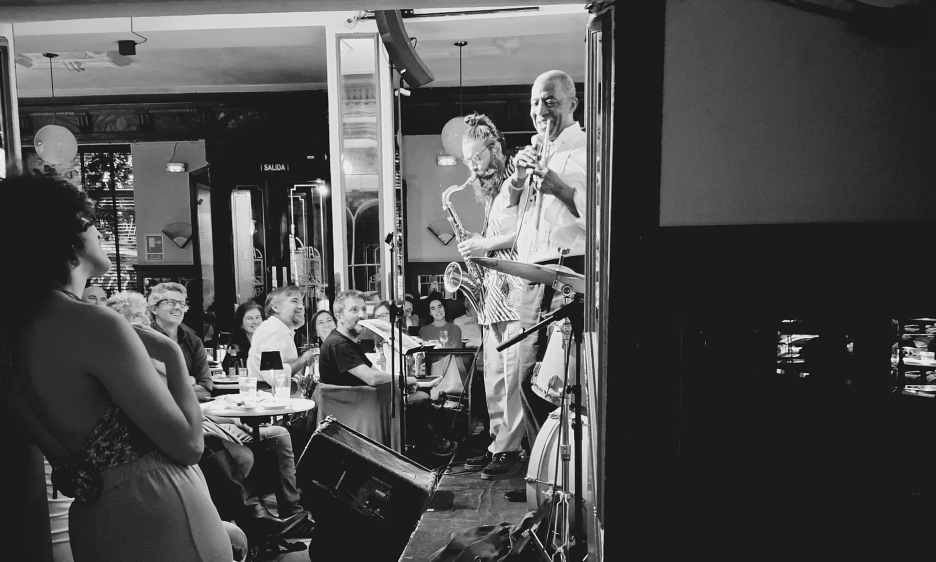
Update: [10/8/2025] -Thanks to the diligent work of their lawyers, Café Central has managed to secure an extension that allows them to remain at their current location until at least early 2026. Despite this reprieve, Bohigues states that the search for a new venue continues unabated, as the landlords' position remains unchanged, and within the next year they'll be forced to leave their irreplaceable space.
Tags
The Jazz Life
Artur Moral
Spain
Madrid
Chicago
san francisco
New York City
Jazz Standard
Café Central
Henry "Red" Allen
Pedro Iturralde
Tete Montoliu
Chano Dominguez
Jorge Pardo
Javier Colina
Ignasi Terraza
Sheila Jordan
Mal Waldron
Randy Weston
Barry Harris
benny golson
Art Farmer
Ron Carter
Al Foster
Bobby Watson
Sam Rivers
Kenny Barron
George Cables
Kirk Lightsey
Joe Farnsworth
Jerry Gonzalez
Paquito D'Rivera
brad mehldau
Jeremy Pelt
Mark Turner
Don Pullen
Charles Mingus
George Adams
Dannie Richmond
Cameron Brown
New Beginnings
David Murray
ben sidran
Leo Sidran
Cien Noches
Barcelona
Antonio Serrano
En el Central
Andrea Motis
Josep Traver
Esteve Pi
Steve Nelson
Eric Dolphy
Last Date
PREVIOUS / NEXT
Support All About Jazz
 All About Jazz has been a pillar of jazz since 1995, championing it as an art form and, more importantly, supporting the musicians who make it. Our enduring commitment has made "AAJ" one of the most culturally important websites of its kind, read by hundreds of thousands of fans, musicians and industry figures every month.
All About Jazz has been a pillar of jazz since 1995, championing it as an art form and, more importantly, supporting the musicians who make it. Our enduring commitment has made "AAJ" one of the most culturally important websites of its kind, read by hundreds of thousands of fans, musicians and industry figures every month.




